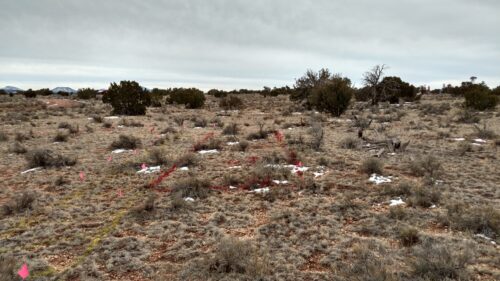
Hi, Phoenix here. Many of the previous posts have dealt with the details of achieving sustainability on a homestead. Three years into my journey, I’d like to revisit the important reason, the why, behind sustainability. I started homesteading to pursue sustainability at several levels: mental, physical, financial, and environmental.
- Mental: My mental health has been much better on the homestead than living in the city on the grid. The necessity of going outside and feeding the animals keeps me connected to nature and makes me feel grounded. Spending time with the animals makes me less anxious. Maintaining my mental health has been especially important during the pandemic, the Russia-Ukraine crisis, and threats of nuclear weapons by North Korea.
- Physical: Before I started homesteading, I had debilitating back pain from over-working weak muscles. My body has gotten stronger by working on the homestead. While I still have pain, it’s less intense and lasts for a shorter period of time. I also feel better about my physical health eating food produced by the homestead. Food recalls are scarily frequent, such as the ice cream salmonella, greens with E coli, and the thousands of chickens culled due to avian flu outbreak. I know my own food is safe.
- Financial: Before homesteading, most of my salary went to paying rent. While this could have been avoided by purchasing a house in the city before the huge inflation of house prices due to the pandemic lockdowns, I would still have ended up with a 30-year mortgage. In contrast, setting up an off-grid homestead was cheaper, especially doing it slowly. With the homestead set up, K and I avoid the monthly expenses of rent, electric, water, and propane bills. Especially since some of these utility companies will charge a minimum rate regardless of the consumption level. We still have to haul water and order propane once or twice a year, but this is much cheaper than a monthly bill. We supplement our food needs with goat milk and dairy products, eggs, some vegetables, and goat meat, mutton, and chicken. While we still need to go to the grocery store, especially in the winter, we don’t need to buy nearly as much. We also make our own goat milk soap and keto bread, which also saves money and has the added advantage of being fun to make and customize to our own taste. Having financial health is especially important right now, with inflation, the threat of recession, and the volatility of the stock market.
- Environmental: When I was living on the grid, it was terribly easy to consume large amounts of electricity, water, and gas because everything was readily available with the flip of a switch or turn of a knob. On the homestead, I’m a lot more aware of how much water I’m using since we have to haul it. The same goes with propane, which I see being consumed by the propane heater and stove. Being on solar power, I have to be mindful of my electricity use, especially in the winter.
The need for environmental sustainability continues to become more urgent with the changing climate. I still have a lot to do in terms of establishing sustainability for myself, but homesteading has been a step in the right direction. All of the actions described above decrease my environmental footprint, and help me feel like I am doing my small part to mitigate climate change in the face of inaction by large nation states. I am personally honoring the earth and cultivating a legacy of stewardship.
Next Blog Post: Part 1: Winter Homesteading (by Phoenix)
